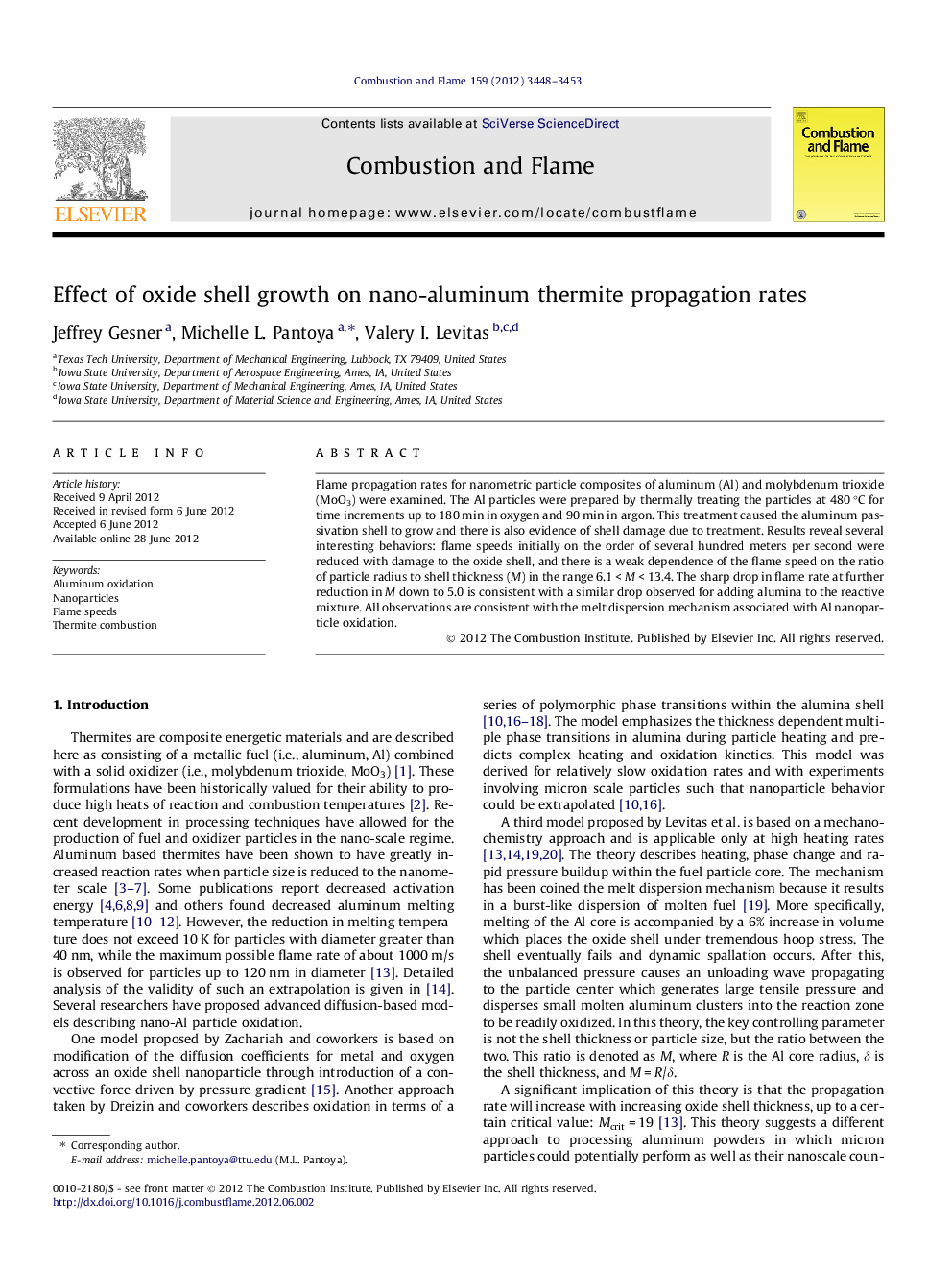| Article ID | Journal | Published Year | Pages | File Type |
|---|---|---|---|---|
| 166498 | Combustion and Flame | 2012 | 6 Pages |
Flame propagation rates for nanometric particle composites of aluminum (Al) and molybdenum trioxide (MoO3) were examined. The Al particles were prepared by thermally treating the particles at 480 °C for time increments up to 180 min in oxygen and 90 min in argon. This treatment caused the aluminum passivation shell to grow and there is also evidence of shell damage due to treatment. Results reveal several interesting behaviors: flame speeds initially on the order of several hundred meters per second were reduced with damage to the oxide shell, and there is a weak dependence of the flame speed on the ratio of particle radius to shell thickness (M) in the range 6.1 < M < 13.4. The sharp drop in flame rate at further reduction in M down to 5.0 is consistent with a similar drop observed for adding alumina to the reactive mixture. All observations are consistent with the melt dispersion mechanism associated with Al nanoparticle oxidation.
